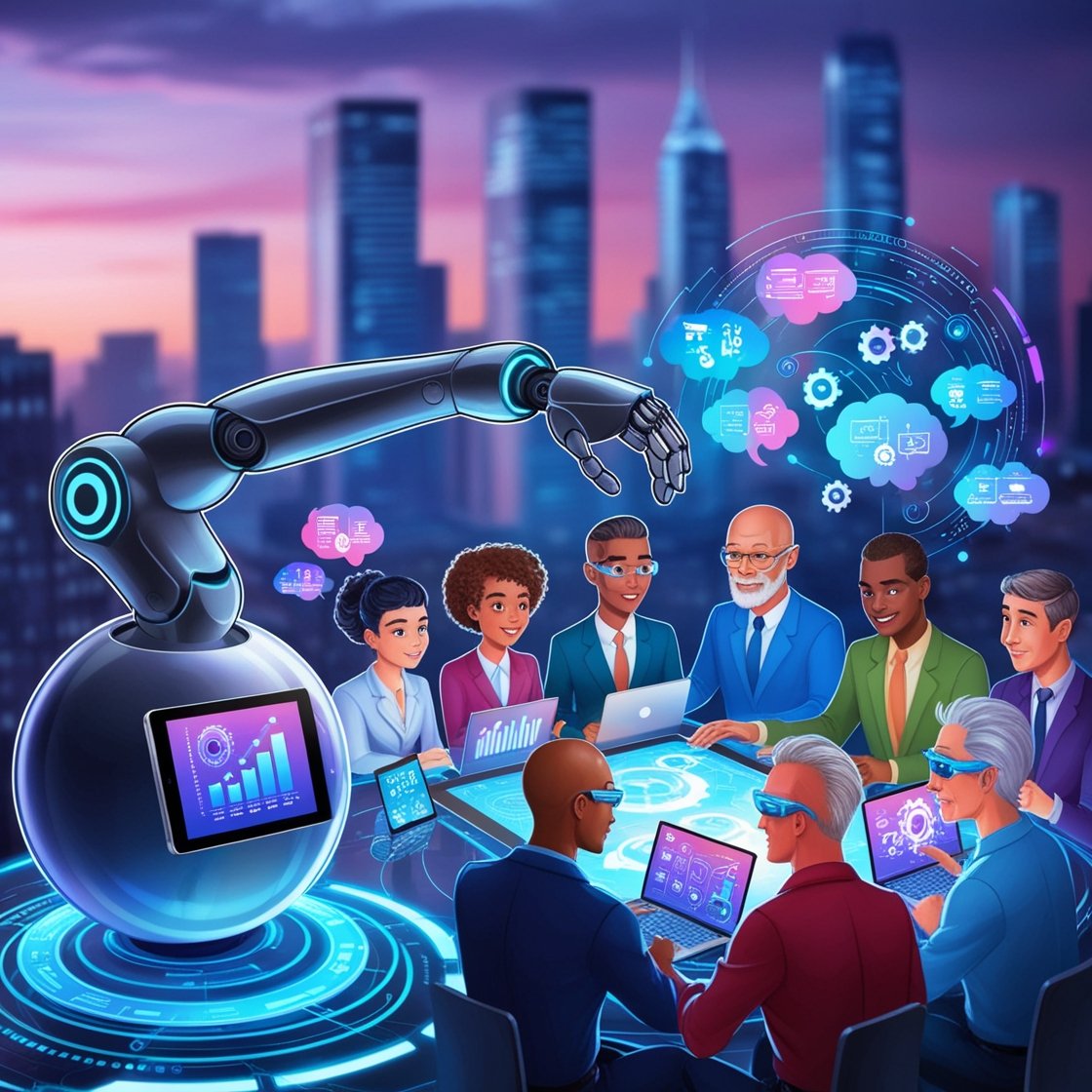Artificial intelligence (AI) and automation are no longer just buzzwords; they’re powerful forces transforming the way businesses operate across industries. As we move deeper into the digital age, understanding how AI and automation will impact the workplace is essential for businesses and employees alike. In this article, we’ll discuss how these technologies are reshaping businesses, altering job roles, and changing the skills needed for future success.
1. Redefining Job Roles and Responsibilities
AI-driven tools are taking over repetitive tasks, freeing employees to focus on strategic, creative, and complex activities. As businesses adopt these technologies, many traditional job roles are evolving, creating a demand for hybrid roles that blend human and machine collaboration.
2. Enhancing Decision-Making with AI
AI’s ability to analyze vast amounts of data enables businesses to make more informed and accurate decisions. From customer behavior insights to predictive analytics, AI enhances strategic planning, allowing leaders to act proactively rather than reactively.
3. Streamlining Operations and Efficiency
Automation is revolutionizing workflows. Tasks that once required hours can now be completed in seconds with the right software, improving operational efficiency and reducing human error. This efficiency enables businesses to allocate resources more effectively.
4. Increasing Demand for AI Skills in the Workforce
As businesses incorporate AI and automation, demand for specific skill sets has surged. Fields like data analysis, AI ethics, and machine learning are in high demand. Employees and job seekers who upskill in these areas are well-positioned for career growth in this evolving landscape.
5. Transforming Customer Service with AI
AI-powered chatbots and virtual assistants provide instant responses and support, reshaping customer service. These technologies improve user experience, reduce wait times, and free up human agents for more complex issues.
6. New Ethical Considerations and AI Governance
As AI and automation become integral to business processes, ethical concerns arise. From data privacy to fairness in decision-making, businesses must prioritize ethical AI practices to maintain trust and integrity.
7. Accelerating Product Development
AI is making it possible for businesses to innovate faster. From design to prototyping, AI-driven tools expedite product development cycles, giving companies a competitive edge and speeding time-to-market.
8. Boosting Marketing Personalization
AI-driven algorithms analyze consumer data to create personalized marketing strategies. This level of customization enhances customer engagement and drives conversion rates, as businesses can tailor messaging to meet individual preferences.
9. Cost Savings and Financial Optimization
Automation reduces operational costs by minimizing manual labor needs and increasing process efficiency. Financial AI tools assist with expense tracking, budgeting, and even investment decisions, helping companies optimize their financial health.
10. Preparing for a Hybrid Human-AI Workforce
The future of work will likely involve close collaboration between humans and AI. Preparing for this involves upskilling, reskilling, and fostering adaptability within the workforce. Embracing this shift can help businesses stay competitive in an increasingly AI-driven market.
Conclusion:
AI and automation are reshaping the future of work, presenting both challenges and opportunities. As businesses and workers adapt, understanding these technologies will be crucial. With AI taking on repetitive tasks and data-driven decision-making, businesses have the chance to foster creativity and innovation. Embrace the future by staying informed and prepared for these inevitable changes in the workplace.






Leave a Comment